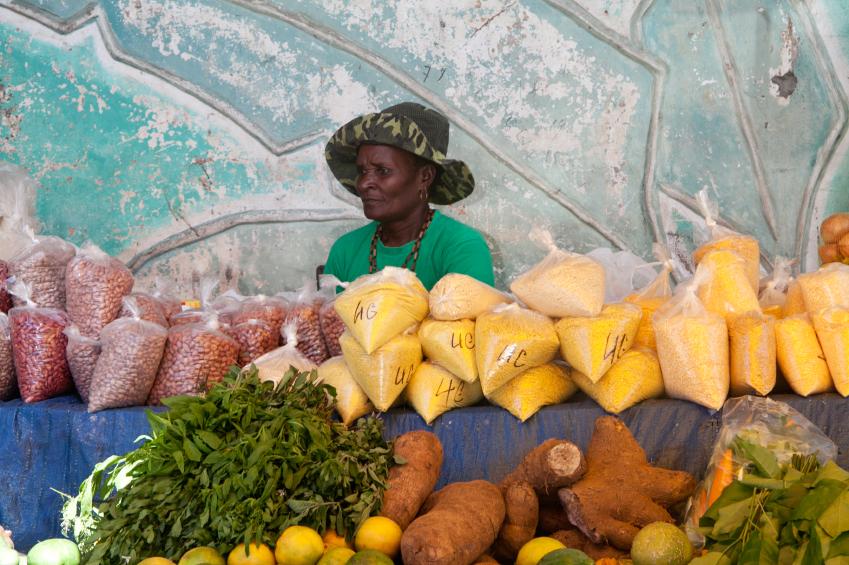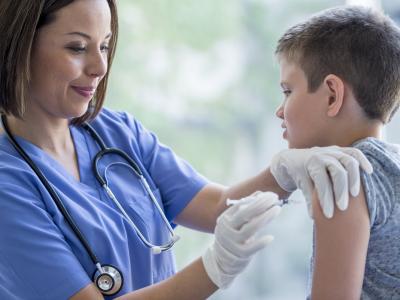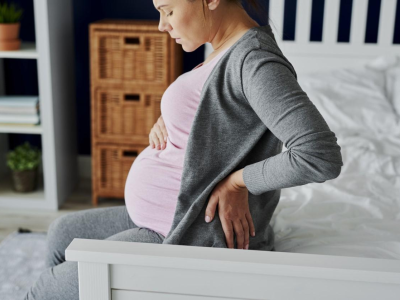Leaders in the response to West Africa's burgeoning Ebola epidemic today stepped up their calls for fast action to stop the disease, while the United Nations' Food and Agriculture Organization (FAO) warned that the epidemic is threatening food supplies in the affected countries.
Tom Frieden, MD, MPH, director of the Centers for Disease Control and Prevention (CDC), spoke of a limited window of opportunity to arrest the epidemic, while the president of Medecins Sans Frontieres (MSF, or Doctors Without Borders) painted a grim picture and called on governments to send civilian and military teams of biodefense experts to West Africa immediately.
Meanwhile, the FAO said disruptions caused by the epidemic are driving up food prices in the affected countries and warned that the same factors may threaten the upcoming harvest season.
Also today, media reports said another American missionary doctor in Liberia has contracted Ebola virus disease (EVD).
Frieden sounds alarm
Frieden, back from a visit to the three hardest-hit countries, Guinea, Liberia, and Sierra Leone, spoke at a news teleconference from Atlanta today.
"The bottom line is that despite tremendous efforts from the US government, CDC, and countries, the number of cases continues to increase and is increasing rapidly," he said, predicting that the count will continue to rise over the next few weeks.
"There is a window of opportunity to tamp this down, but that window is closing," he warned.
"I can't possibly overstate the need for an urgent response," he said. "While I fear that we'll see a worsening over the next couple of weeks, I remain confident that we can make a big difference and that we can control it if we act now."
The World Health Organization put the EVD count in the West African outbreak at 3,069 cases with 1,552 deaths on Aug 28, but experts have said the real count is probably much higher.
Frieden described the outbreak as "the first Ebola epidemic the world has ever known," in that it's the first time the disease has spread widely in society.
As an example of the tremendous needs he saw, he described visiting a new EVD treatment center that had 35 beds but 63 patients, with many patients lying on the floor.
In one treatment center, he had firsthand experience working in the required personal protective equipment. "It's roasting hot, it's very difficult to move," he said. "Sweat pours down into your goggles, into your eyes. The ability to start an IV line and draw blood, it's hard."
Frieden cited a need to provide more treatment centers, healthcare workers, supplies, and infrastructure, and to improve clinical management and infection control.
"Perhaps most importantly, there is need for a functional emergency operations center at either the national or the district levels directing an efficient response," he said in a prepared statement.
As an example of a successful local response, he cited a rubber plantation owned by Firestone. In response to a case, the company created an Ebola treatment center, trained staff members, and arranged for testing by the CDC, he said.
By identifying 73 contacts, including 11 with illnesses, and isolating and monitoring them, the company managed to prevent any more cases, he said.
Frieden also told of meeting a young woman who had contracted EVD by holding her sister-in-law's 2-year-old daughter, who had vomiting and diarrhea. When the woman herself got sick, she went to a treatment center, where she survived.
Frieden said there is no sign that the virus is becoming more transmissible, but he acknowledged a "theoretical risk" that that could happen. The risk is "probably low, but it's not zero," he said.
He stressed that the affected countries are strongly committed to battling the disease. "The countries are engaged and willing to stop it. They need the world to work with them."
MSF president sketches bleak scene
At a special briefing at the United Nations (UN) in New York, MSF President Joanne Liu, MD, described the situation in the affected countries as grim. MSF is the leading non-governmental organization battling the epidemic.
"In West Africa, cases and deaths continue to surge. Riots are breaking out. Isolation centers are overwhelmed," she said in a statement. "Health workers on the front lines are becoming infected and are dying in shocking numbers. Others have fled in fear, leaving people without care for even the most common illnesses. Entire health systems have crumbled.
"Ebola treatment centers are reduced to places where people go to die alone, where little more than palliative care is offered. It is impossible to keep up with the sheer number of infected people pouring into facilities. In Sierra Leone, infectious bodies are rotting in the streets.
"Rather than building new Ebola care centers in Liberia, we are forced to build crematoria."
Liu said MSF, which has cared for more than two thirds of the known EVD case-patients in the epidemic, is "completely overwhelmed."
But although the world's response has been "too little, too late," it's still possible to stop the epidemic, Liu asserted.
She said many UN member countries have spent much on biodefense, and they therefore "have a political and humanitarian responsibility to immediately utilize these capabilities in Ebola-affected countries."
"To curb the epidemic, it is imperative that States immediately deploy civilian and military assets with expertise in biohazard containment," she said. "I call upon you to dispatch your disaster response teams, backed by the full weight of your logistical capabilities. This should be done in close collaboration with the affected countries."
Liu called for "scaling up isolation centers," providing mobile diagnostic labs, establishing "dedicated air bridges to move personnel and equipment to and within West Africa," and building a network of field hospitals to treat infected medical workers.
She also said the world must remedy the collapse of Liberia's healthcare system by reopening closed hospitals and setting up new ones.
In addition, she called for dropping "coercive measures" such as forced quarantines and laws against failing to report suspected cases. Those measures only cause concealment of cases and drive sick people away from the healthcare system, she said.
FAO worried about food security
The FAO said today that Ebola-related disruptions in food distribution in the three most-affected countries are driving food prices up, while labor shortages are threatening to hamper the upcoming harvest season.
"Quarantine zones and restrictions on people's movement aimed at combating the spread of the virus, although necessary, have seriously curtailed the movement and marketing of food," the FAO said in a press release and a report. This has led to "panic buying, food shortages and significant food price hikes on some commodities, especially in urban centers."
For example, a recent market assessment in Monrovia, the Liberian capital, showed that the price of cassava jumped 150% in the first weeks of August, the agency said.
In addition, the main harvest season for rice and maize, two major crops, is weeks away, the FAO said. "Labor shortages on farms due to movement restrictions and migration to other areas will seriously impact farm production, jeopardizing the food security of large numbers of people."
The agency said the areas most affected by the epidemic are among the most productive in Sierra Leone and Liberia.
Also, production of cash crops like palm oil, cocoa, and rubber, on which many families depend, is expected to be seriously affected, the statement said.
To meet short-term food relief needs, the UN World Food Programme (WFP) has launched a regional emergency operation aiming to provide 65,000 tons of food to 1.3 million people, the FAO reported.
Meanwhile, the agency called for efforts to identify feasible measures to cushion the impact of labor shortages during the harvest and afterward, and also appealed for "measures to revive internal trade" and thus improve the food supply.
At the same time, the agency said, "Preventing further loss of human life and stopping the spread of the virus remain the top priorities at this time. FAO has joined the coordinated UN effort to support affected countries, is in daily communication with WHO and other key actors, and has personnel in West Africa aiding technical and logistical efforts."
American doctor infected
In other developments, another American physician working for the missionary organization SIM (Service in Mission) has contracted Ebola, the group announced today.
The doctor was treating obstetrics patients at SIM's ELWA hospital in Monrovia, Liberia, SIM said in a statement. "Upon onset of the symptoms, the doctor immediately isolated himself and has since been transferred to the ELWA Ebola isolation unit. The doctor is doing well and is in good spirits," the statement said.
It was not clear how the doctor contracted the virus, since he was not treating patients in the hospital's Ebola isolation facility, which is separate from the main hospital, the statement said.
SIM is the same organization that employed Nancy Writebol, one of two Americans who previously contacted EVD in Liberia. They were evacuated from the country in early August and treated at Emory University in Atlanta. Writebol recovered and was released from the hospital Aug 19.
See also:
Sep 2 CDC press release
Sep 2 statement by Liu of MSF
Sep 2 FAO press release
Sep 2 FAO report
Sep 2 SIM press release

















